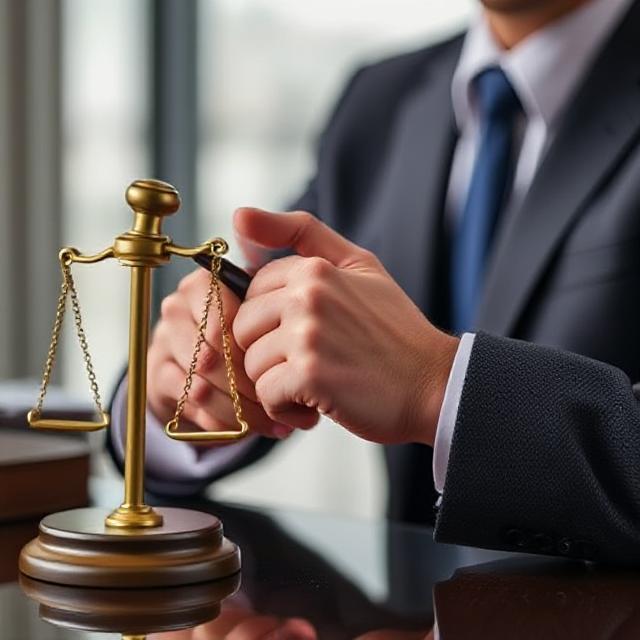How to Select the Best Personal Injury Lawyer for Your Case

If you've been injured in an accident or due to someone else's negligence, navigating the legal complexities of your case can be overwhelming. The right personal injury lawyer can make a significant difference in helping you secure compensation for pain and suffering, medical bills, lost wages, and other damages. But with so many attorneys to choose from, how do you know who is best suited to handle your case? Here are several essential steps and questions to consider when hiring a personal injury lawyer.
1. Experience and Specialization
Experience is always one of the most important factors when choosing a personal injury lawyer. While many lawyers may have broad legal experience, personal injury law requires specialized knowledge. You’ll want to work with an attorney who has handled cases similar to yours, whether it’s a car accident, medical negligence, slip-and-fall incidents, or workplace injuries.
While researching potential lawyers, check how long they’ve been practicing personal injury law and how much of their practice is focused on these types of cases. A lawyer specializing in personal injury law will stay up-to-date with the latest legal trends, the local court system, and insurance companies. They’ll know how to build a solid case and effectively negotiate on your behalf.
2. Success Rate
The success rate of a lawyer is another critical factor. A lawyer with a strong track record in handling personal injury cases or securing fair settlements for their clients is likely to be able to handle your case effectively. Many personal injury lawyers are happy to share client testimonials or case results on their website, which you can review during your initial consultation.
It’s also worth asking the lawyer about the outcomes of cases similar to yours, whether through a settlement or trial award. The more successful cases they’ve handled, the better they will understand how to navigate your situation.
3. Reputation and Reviews
A lawyer’s reputation can reveal a lot about their professionalism, ethics, and ability to deliver favorable results for clients. Research the lawyer online to see what previous clients have to say about them. Websites like Google, Yelp, and Avvo feature reviews and ratings from past clients, providing valuable insights into their experience.
It’s also helpful to ask friends, family, or colleagues for recommendations. A referral from someone you trust, especially if they’ve worked with a personal injury lawyer before, can carry a lot of weight in your decision-making process.
4. Communication and Availability
Clear and effective communication is vital when working with your criminal lawyer, particularly if you are recovering from an injury. During your initial consultation, observe how the lawyer communicates with you. Are they attentive to your questions? Do they explain the legal process in a way that is easy to understand?
You’ll also want to make sure the lawyer is available when needed. Some lawyers delegate much of the work to less experienced staff, but you want an attorney who will work directly with you on the important aspects of your case and keep you updated on the progress.
5. Fee Structure
Most personal injury lawyers operate on a contingency fee basis, meaning they only get paid if you win your case. This can be a huge benefit, as you don’t need to pay upfront for legal services. However, it’s important to understand the terms of the arrangement.
Be sure to discuss how much the lawyer will take as a percentage of your settlement or award and ask about any additional costs that may arise, such as court fees or expert witness charges. A good personal injury lawyer will be transparent about their fees and explain all potential costs to avoid any surprises later on.
6. Comfort and Trust
Finally, comfort and trust are key when choosing your personal injury lawyer. This person will be representing you and fighting on your behalf, so you need to feel comfortable with them. If you feel uneasy about their approach or have concerns about whether they’re truly focused on your needs, it might be a sign to keep looking.
Take the time to meet with multiple lawyers before making your decision. Pay attention to how they treat you during the consultation—do they listen to your concerns, respect your needs, and show genuine interest in your case? This personal connection can make a big difference in how your case progresses and the overall experience.
Conclusion
Choosing the right personal injury lawyer is one of the most important decisions you’ll make in your case. Take the time to research potential candidates, looking at their experience, success rate, and reputation. Communication, fees, and trust are just as important in making your decision. A good personal injury lawyer will be committed to fighting for your rights and will guide you through the process of securing compensation for your injuries. With the right legal representation, you can focus on your recovery while they handle the challenges of your case.
Post Your Ad Here
Comments